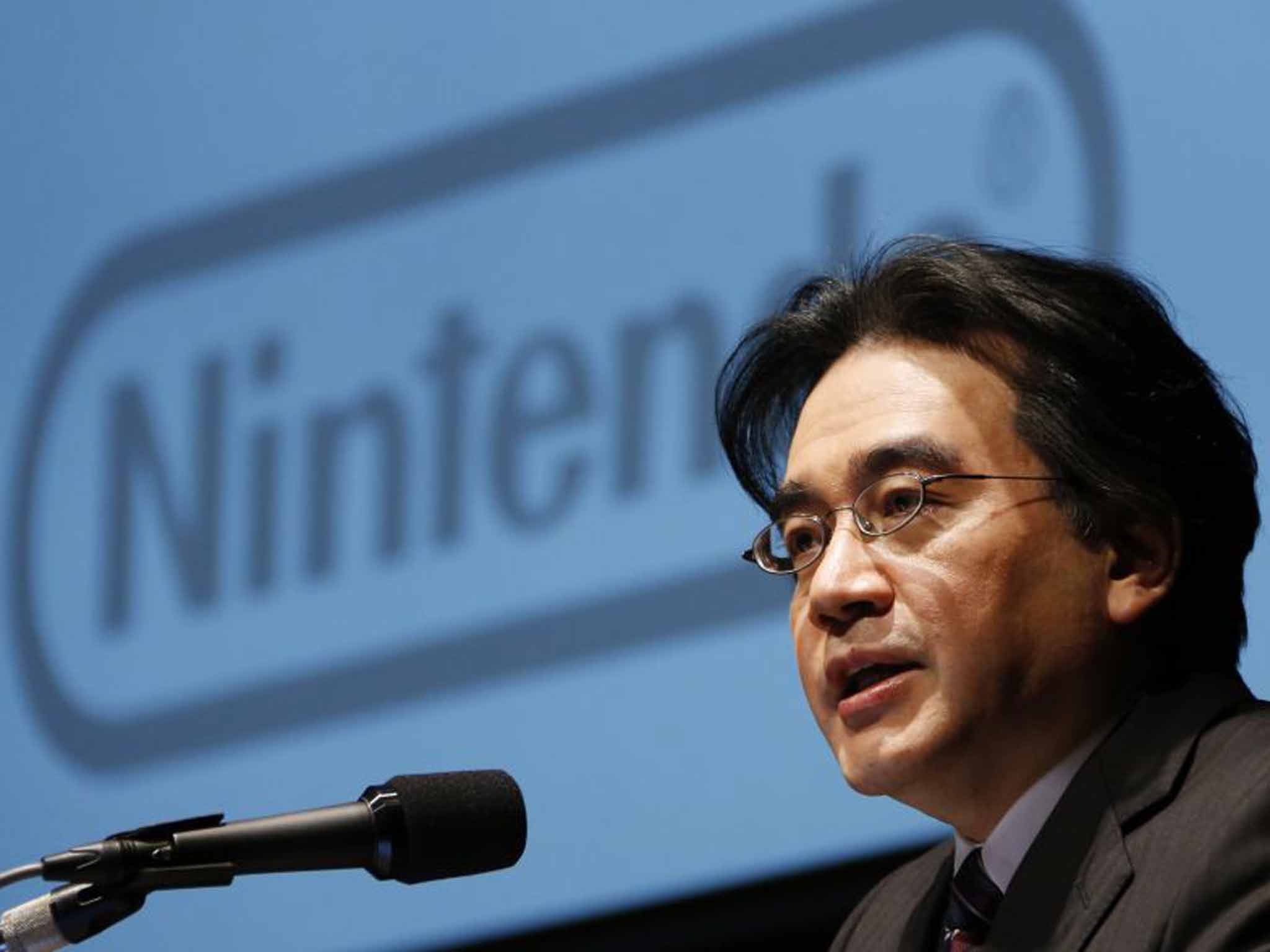Satoru Iwata: Video games designer who became head of Nintendo and a much-loved and respected figure in the gaming industry
Under his leadership, Nintendo developed into a global giants, with the Wii home console and DS handheld device

Satoru Iwata, who has died of cancer at the age of 55, led the Japanese video game company Nintendo through years of growth with its Pokemon and Super Mario franchises, and became a much-loved and respected figure in the process. "He didn't just create technology, he created a whole culture," said Nobuyuki Hayashi, a consultant and technology expert. "It wasn't just a consumer product he delivered. He brought to people something that's eternal, what people remember from when they were kids. He was special."
Iwata was so respected and popular in the industry partly because he was relatively more approachable than the typical Japanese executive, who tends to be aloof and rigid in demeanour. In a talk he gave in 2005 at the Game Developers Conference, Iwata declared, "On my business card, I am a corporate president. In my mind, I am a game developer. But in my heart, I am a gamer."
Under his leadership, Nintendo developed into a global giants, with the Wii home console and DS handheld device. He also navigated Nintendo's way through its recent troubles, largely caused by the advent of smartphones, and had been poised to lead the company into a new phase after it recently performed a volte-face and announced that it will start making games for smartphones – meaning that Super Mario the plumber will soon start arriving on mobile phones and tablets.
The smartphone revolution had led to a substantial fall-off in appetite for game machines. Nintendo has repeatedly been forced to lower prices on gadgets to woo buyers. The company returned to profit in the fiscal year recently ended after several years of losses.
Until the recent shift in strategy, company officials, including Iwata, had repeatedly rejected the idea of developing games for mobile devices, a market they brushed off for years as irrelevant. But in March, Nintendo announced an alliance with the Japanese mobile game company DeNA Co to develop games for mobile devices.
Nintendo, which began making playing cards in the 19th century, has pioneered game machines since the 1980s, developing the massively popular Game Boy. Its main rivals are Sony, with its PlayStation, and Microsoft, with the Xbox, but they have done better in adapting to the era of online and mobile games.
Iwata was born in 1959 and raised in Sapporo, where his father was a municipal mayor. He developed an early interest in creating video games and began producing electronic games while he was still at high school, using an electronic calculator he shared with his schoolmates.
He studied computer science at the Tokyo Institute of Technology, and while he was there was one of several unpaid interns at Commodore Japan, assisting its head engineer with technical and software development tasks.He also did freelance programming work for HAL Laboratory, a games developer which often worked closely with Nintendo.
After graduating, Iwata joined HAL Laboratory full-time and became the company's co-ordinator of software production in 1983. Some of the video games he worked on were Balloon Fight, EarthBound and the Kirby games. With the company on the verge of bankrupcy, Iwata was promoted to president in 1993 and helped turn the company around.
In 1995 he helped found Creatures Inc, and worked on the development of Pokemon Gold and Silver, which were released for the Game Boy Color in 1999. He also worked on programming Pokemon Stadium for the Nintendo 64. In 2000 he joined Nintendo as head of corporate planning, and when Hiroshi Yamauchi, who had ruled over the Kyoto-based firm for half a century, transforming it into a technological powerhouse, stepped down, he anointed Iwata as his successor. Yamauchi remained as an adviser for many years, and died in 2013.
Iwata became Nintendo president at a surprisingly young age for a Japanese company, in his early 40s. He was also the first to lead the company from outside the Yamauchi family.
He remained a presence in Nintendo promotional materials until his death. While he had been absent from the Electronic Entertainment Expo for the past two years due to his health, he appeared in both human and puppet form in a humorous video presentation which streamed in June during the gaming expo.
Mark MacDonald, executive director at Tokyo-based 8-4, a video game consultancy, said Iwata was not afraid to be different and go against mainstream trends in games. But he was also at one with game players, interacting with them, often using the internet, in "this playful back and forth, like a David Letterman in your living room." Indeed, Iwata revolutionised Nintendo's relations with its fans, regularly responding to them through social media, and he commented on Nintendo games in his section of Nintendo's Wii website, "Iwata Asks".
When his death of a bile duct tumour was announced there was an outpouring of emotion on social media. One tribute came from Randy Pitchford, president of Gearbox Software, who said, "I never met anyone in our industry who knew him who did not admire and respect Iwata. I believe our industry has suffered a great loss with his passing. The wisest among us will long try to remember and embody his character."
An illustration showing Nintendo characters weeping around Iwata lying down with his eyes closed on a bed of flowers went viral on Twitter. People said they found the drawing moving and a reminder that there would have been no Pokemon without him. "Thank you, Mr Iwata," the words say above the picture.
Satoru Iwata, video game designer and businessman: born Sapporo, Japan 6 December 1958; married Kayoko; died Kyoto 11 July 2015.
Join our commenting forum
Join thought-provoking conversations, follow other Independent readers and see their replies
Comments